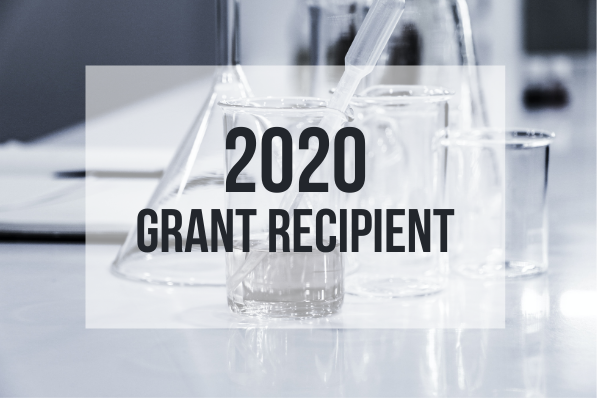
Victoria Carlsen
Abstract
Birth by caesarean section (CS) is common. When CS is planned and performed prior to the onset of labour it is associated with an increased risk of neonatal respiratory morbidity which often requires admission to the neonatal unit for respiratory support resulting in separation of mother and baby. Corticosteroids given to mothers prior to early preterm birth accelerate fetal lung maturation and reduce short-term neonatal respiratory morbidity. Evidence from low-quality trials suggest a similar effect when used prior to planned CS at term and late preterm gestations. However, concern has been raised regarding the risk/benefit profile of using antenatal corticosteroids at these later gestations.
The C*STEROID Trial will be the first-ever high-quality trial of corticosteroids prior to planned CS with sufficient power to assess neonatal benefit and harm to reliably inform future practice. It will also establish a randomised cohort to allow assessment of childhood benefits and harms of this intervention.
The C*STEROID Trial is a multi-centre, triple-blind, placebo-controlled, parallel, phase III trial. It will take place over the next four years within maternal and perinatal health units across New Zealand, with Waikato as a key participating site. Women for whom CS is planned pre-labour at 35+0 to 39+6 weeks’ gestation will be invited to participate and randomly assigned to receive two doses of betamethasone 11.4mg or a visually matching placebo injection 24 hours apart in the week prior to their planned CS. All babies within the trial will have routine neonatal blood glucose concentrations measured. Data will be collected from clinical records until time of hospital discharge. Women will complete questionnaires six weeks postpartum. Two co-primary outcomes will assess benefit and potential harm – respiratory distress requiring >60 minutes of respiratory support and neonatal hypoglycaemia (blood glucose level <2.6 mmol/L). It is hypothesised that corticosteroid use will reduce respiratory distress without increasing hypoglycaemia and therefore co-primary outcomes of a superiority endpoint for benefit and non-inferiority endpoint for harm have been selected. A sample size of 2548 infants (1274 per group) will have 90% power, α 0.05, to detect a reduction from 5.0% to 2.5% in respiratory distress requiring >60 minutes of respiratory support allowing for 3% drop out and design effect 1.02 (clustering of twins). With an event rate of 28% for hypoglycaemia, a sample size of 728 infants (364 per group) will have 90% power, with α 0.05, to reject inferiority.
Despite being new to multicentre clinical trials research the Women’s Health Department at Waikato DHB has already successfully contributed to the C*STEROID Feasibility Study and as such have established a pathway for recruitment to the trial. We are keen to use this knowledge to extend our contribution through the main C*STEROID Trial. We have identified the need for additional funds to support designated midwifery/nursing research time to enable busy clinicians to be supported to contribute during their everyday practice and allow all mothers and babies cared for at Waikato DHB to have the opportunity to participate.
Outcome Statement
Clinical outcomes:
This research has potential to halve the number of babies experiencing respiratory morbidity after birth by planned CS (almost 400 babies per year in New Zealand) and the consequent need for neonatal unit admission and separation from their mothers. It will also reliably inform us on the safety of this intervention.
Clinical practice guidance. Of 59,661 New Zealand births in 2017, 12.6% were by planned CS. The C*STEROID Trial will provide high quality, definitive evidence on the benefits and harms of corticosteroid use prior to planned CS at late preterm and term gestational ages to inform all such births in the future. The results will guide practice in New Zealand and globally. Those who will benefit include: women undergoing planned CS (high quality evidence to inform choice); the babies born to mothers undergoing planned CS (optimising short and long-term health and development); clinicians providing care to these women and babies (currently uncertain of best practice to optimise health); and health managers and policy makers (to ensure care is evidenced-based, consistent and equitable across New Zealand).
Economic:
This research has the potential to provide significant cost savings within New Zealand and globally. For example, a cost-effectiveness analysis from a trial exploring the potential benefits of corticosteroid treatment by all modes of later preterm birth at 34 to 36 weeks gestation identified a saving of USD$23,986 per case of respiratory morbidity averted. The C*STEOROID Trial will be collecting appropriate data to allow for economic analyses.
Research culture:
The trial is being conducted through the ON TRACK Network and the majority of maternal and perinatal health units in New Zealand will participate. The Waikato Women’s Health Department is
relatively new to multi-centre research. This trial will provide the Department with the opportunity to contribute to a large trial, engaging with researchers across the country and be supported to develop our own research skills and encourage our local research workforce.
Would you like to support the work of the Foundation?
Contact us for more information, or simply make a donation.


